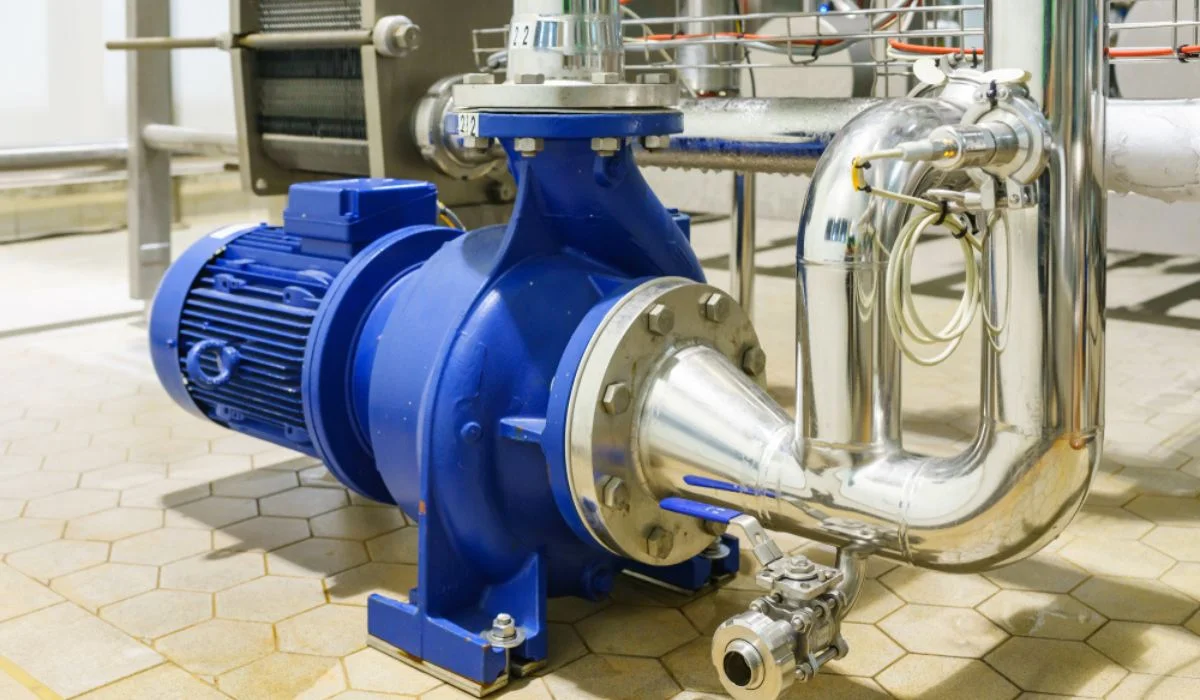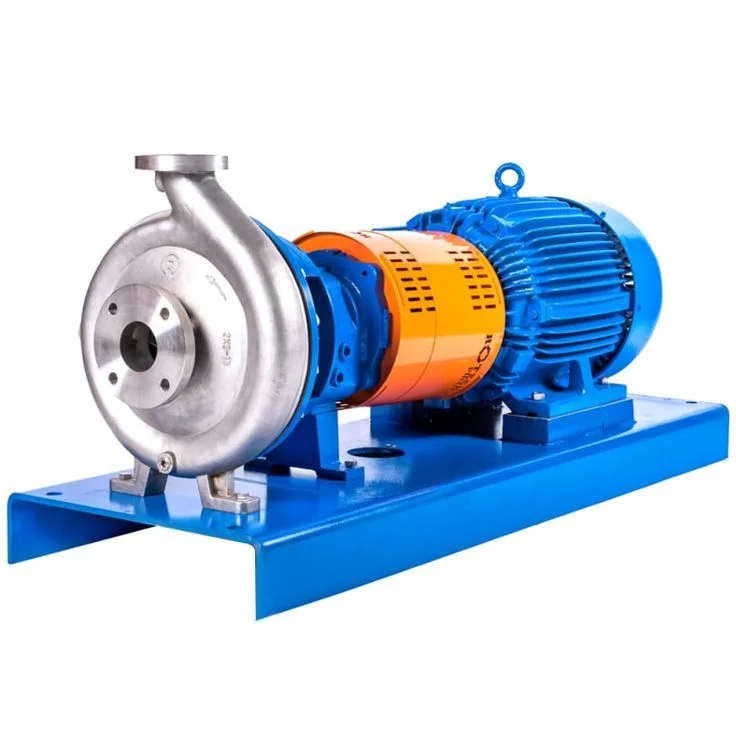 Centrifugal pumps have a wide range of applications in industries and
households. Here’s a comprehensive guide.
Centrifugal pumps are one of the most versatile, efficient, and cost
-effective types of pumps widely used for various applications, ranging from
industrial processes to simple household tasks. Their broad range of uses is
due to their numerous advantages, such as their ability to handle a wide
range of fluids, their high flow rates, their ease of maintenance, and their
reliability even in harsh environments.
These pumps are designed to operate at different pressure levels, which
makes them suitable for use in applications that require high-pressure
pumping. These features make centrifugal pumps an ideal choice for a wide
range of pumping requirements.
Centrifugal pumps have a wide range of applications in industries and
households. Here’s a comprehensive guide.
Centrifugal pumps are one of the most versatile, efficient, and cost
-effective types of pumps widely used for various applications, ranging from
industrial processes to simple household tasks. Their broad range of uses is
due to their numerous advantages, such as their ability to handle a wide
range of fluids, their high flow rates, their ease of maintenance, and their
reliability even in harsh environments.
These pumps are designed to operate at different pressure levels, which
makes them suitable for use in applications that require high-pressure
pumping. These features make centrifugal pumps an ideal choice for a wide
range of pumping requirements.
 Source: Pinterest
Table of Contents
Source: Pinterest
Table of Contents
- Centrifugal pumps: How do they work?
- Centrifugal pumps: Advantages
- Centrifugal pumps: Industrial applications
- FAQs
Centrifugal pumps: How do they work?
- Centrifugal pumps use centrifugal force to move fluids from one place to another.
- They consist of an impeller that rotates within a casing and is driven by an electric motor.
- As the impeller rotates, it creates a flow of fluid that is directed into the casing.
- This flow of fluid creates a pressure differential that moves the fluid from the inlet to the outlet.
- The expelled fluid is then directed through an outlet, where it is delivered to its intended destination.
- The rotation of the impeller, driven by the electric motor, creates the necessary pressure differential to move the fluid.
- This process of fluid flow and the pressure differential is repeated continuously as long as the pump is in operation.
 Source: Pinterest
Source: Pinterest
Centrifugal pumps: Advantages
- High efficiency: Centrifugal pumps are known for their high efficiency and ability to pump large volumes of fluid at high speeds. This makes them suitable for applications that require high flow rates, such as transferring water from a low-pressure source to a high-pressure destination. Their high efficiency also means that they consume less energy, which makes them more cost-effective to run over the long term.
- Reliability: Centrifugal pumps are known for their reliability and are designed to operate for long periods of time with very little maintenance required. This makes them ideal for use in harsh environments where downtime is not an option, such as in industrial processes or critical systems. Additionally, centrifugal pumps are typically built with high-quality materials and with robust construction, which increases their lifespan and reduces the need for frequent replacements.
- Versatility: Centrifugal pumps are designed to handle a wide range of fluids, including liquids with varying viscosities and solids. This versatility makes them ideal for use in a variety of industrial and commercial applications, including chemical processing, water treatment, and food and beverage production. Additionally, centrifugal pumps can be designed to meet specific needs, such as corrosive-resistant materials for use in harsh chemical environments. (Zolpidem)
- Suitable for high-pressure pumping: Centrifugal pumps can be designed to operate at different pressure levels, making them suitable for use in applications that require high-pressure pumping. This makes them ideal for use in applications such as water supply and distribution, where high -pressure pumps are necessary to transport water over long distances.
- Cost-effective: Centrifugal pumps are relatively inexpensive compared to other types of pumps, making them a cost-effective option for many applications. Additionally, their low maintenance requirements and long lifespan make them an economical choice over the long term.
- Wide range of applications: Centrifugal pumps have a broad range of uses, from industrial processes to household tasks, due to their versatility, efficiency, and reliability. This makes them an ideal choice for a wide range of pumping requirements, including transferring water from one place to another, moving chemicals in processing plants, and circulating fluids in heating and cooling systems.
- Easy to install and maintain: Centrifugal pumps are easy to install and maintain, which makes them a popular choice for a wide range of applications. They typically have few moving parts, which reduces the risk of failure and makes maintenance simple and straightforward. Additionally, their compact design and ease of installation make them a convenient choice for many applications, including those in tight spaces or where quick installation is required.
Centrifugal pumps: Industrial applications
- Chemical processing: Centrifugal pumps are commonly used in chemical processing plants for transferring liquids, such as acids and caustics, between storage tanks and processing equipment.
- Water treatment: They are also widely used in water treatment plants for pumping water to and from filtration systems, as well as for distributing treated water to consumers.
- Food and beverage production: In the food and beverage industry, centrifugal pumps are used for transferring liquids and solids, such as liquids with high viscosity and food products, from one location to another.
- Oil and gas production: In the oil and gas industry, centrifugal pumps are used for transferring oil and gas from wells to storage tanks and processing facilities.
- Mining: They are also commonly used in mining operations for pumping liquids, such as water and chemicals, to and from processing equipment.
- Power generation: Centrifugal pumps are used in power generation plants for circulating water in cooling systems and for transferring water to and from boilers.
- Paper and pulp production: In the paper and pulp industry, they are used for transferring liquids, such as pulping liquids and chemicals, between storage tanks and processing equipment.
- Pharmaceutical production: In the pharmaceutical industry, centrifugal pumps are used for transferring liquids, such as chemicals and finished products, between storage tanks and processing equipment.
FAQs Can centrifugal pumps handle high-viscosity fluids? Yes, centrifugal pumps can handle high-viscosity fluids, although the efficiency may be affected. Can centrifugal pumps be used for pumping liquids with solids? Yes, centrifugal pumps can be used for pumping liquids with solids, but the size of the solids must be considered to avoid damage to the pump. Are centrifugal pumps suitable for high-pressure pumping applications? Yes, centrifugal pumps are suitable for high-pressure pumping applications, but the design must be properly selected to handle the increased pressure. What is the typical lifespan of a centrifugal pump? The typical lifespan of a centrifugal pump is dependent on factors such as the quality of the pump, operating conditions, and maintenance practices. With proper maintenance, a centrifugal pump can last for several years. Got any questions or point of view on our article? We would love to hear from you. Write to our Editor-in-Chief Jhumur Ghosh at jhumur.ghosh1@housing.com